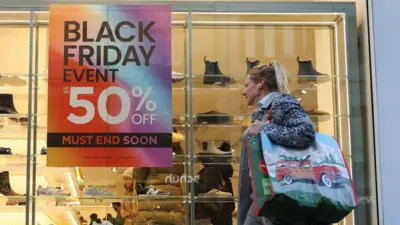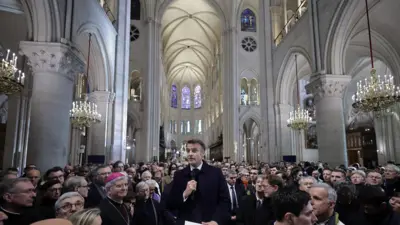We've updated our Privacy and Cookies Policy
We've made some important changes to our Privacy and Cookies Policy and we want you to know what this means for you and your data.
Cards kept close to chest in Welsh budget stalemate
Top Stories
Opposition leaders in the assembly have refused to say where they would make cuts to pay for their spending demands.
Talks over the Welsh government's budget reached deadlock after Labour's opponents joined forces.
Despite calling for major changes, the Conservatives, Plaid Cymru and the Liberal Democrats will not publicly spell out where they would wield the axe.
First Minister Carwyn Jones says talks will continue in private.
The opposition's united front increases pressure on him as he looks for the consent of at least one opposition AM to get his budget through the Senedd. Labour has 30 of the assembly's 60 seats.
Top Stories
A joint amendment from the opposition says the draft budget of £14.5bn fails to adequately address pressure on the NHS, education, capital spending and the economy.
'Intensity'
It will be debated in the Senedd next Tuesday with a vote on a final budget due on 6 December.
Conservative opposition leader Andrew RT Davies told ┤¾¤¾┤½├¢ Radio Wales that the opposition's stance was "clearly defined by the amendment".
Asked where he would make cuts to fund the changes called for, he said: "I'm not going to negotiate on Good Morning Wales, although I have enormous respect for this programme.
"I'm telling you that we have had discussions over the last month. Our researchers have worked up a budget."
If the amendment passes, or if the draft budget falls, "those negotiations will gain another level of intensity up until 6 December when the final vote will be taken", he added.
Top Stories
'Less money'
He said: "We fully understand that there is less money in the pot to deal with this time.
"People are not asking for more, they are asking for a prioritisation of the money."
The first minister this week insisted there is no "magic money pot", with all departments facing the consequences of a spending squeeze. Reserves have been pushed to their limit, leaving the government with little room for manoeuvre.
Also speaking to Good Morning Wales, Plaid leader Ieuan Wyn Jones said the opposition recognised the assembly was handling a declining budget for first time since devolution, but the "government hadn't got its priorities right".
Negotiations with ministers were yet come to an agreement, he said, but the amendment "stakes out the ground upon which we've been arguing".
'Political posturing'
Mr Jones, who wants further investment to help the economy, added: "I'm not going to negotiate on Radio Wales this morning. I don't think that would be right."
He escalated a war of words with his former coalition partners in Labour this week, accusing them of sitting back and blaming the Conservative-led government in Westminster which sets the size of the devolved budget.
Welsh Lib Dem finance spokesman Peter Black said: "It's not political posturing and it can achieve things, because clearly the government needs the support of one of the opposition parties to get their budget through.
"And unless they come to us with some serious proposals as to how they can amend that budget to meet the priorities of those parties - particularly around health and education and the economy - then I think the government are going to find it very difficult in four weeks' time when the final budget comes forward."
The government responded swiftly to the opposition's amendment on Thursday night, saying it was not surprised by the move and that it wanted to "discuss matters responsibly" in the run up to 6 December.
Speaking during a visit to Colwyn Bay on Friday, the first minister said he hoped to find common ground, but would not elaborate.
"I can't negotiate in public," he said.
"It's important that these things are kept in private."
He added: "We will keep on talking in good faith to other parties. There is progress. There is some work to be done yet, but we know that this is the process that happens when we're negotiating a budget."
Top Stories
More to explore
Most read
Content is not available








